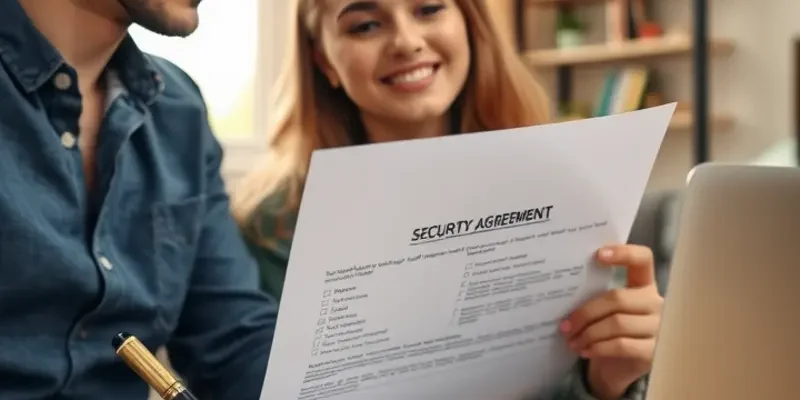Renting your first apartment or home can be both exciting and overwhelming. As a young professional, student, couple, or family, understanding your tenant rights, especially regarding security deposits, is crucial for financial clarity and peace of mind. Security deposits are often a significant upfront expense, typically amounting to one month’s rent or more. They are intended to protect landlords from potential damages or unpaid rent. However, tenants also have specific rights and protections that ensure their money is handled fairly and returned when due. This article breaks down what you need to know about security deposits, including how much can be charged, your rights during the rental process, and the steps to take if disputes arise. By armoring yourself with knowledge, you can navigate the renting landscape confidently and make informed decisions that safeguard your hard-earned money.
Decoding Security Deposits: What You Need to Know

Understanding security deposits is key for navigating your rights as a renter. A security deposit is a sum of money you pay to a landlord before moving in, providing financial security against potential damages or breaches of lease agreements. Typically, these deposits are refundable, provided the property remains in good condition.
How Much Should You Expect to Pay?
The amount of a security deposit often varies, but generally, it equals one to two months’ rent. This can depend on multiple factors, including your state’s regulations, the rental market, and your credit history. For instance, landlords might set higher deposits if they perceive a higher risk of default or property damage.
Legal Guidelines for Security Deposits
U.S. laws regarding security deposits differ significantly by state. Some states cap the deposit at one month’s rent, while others allow more flexibility. It is essential to familiarize yourself with local laws to avoid overpayment.
For example, some states require landlords to keep deposits in separate accounts and to return them within a specified time after the lease ends. Be sure to check your local regulations for precise details.
What Does a Security Deposit Cover?
Primarily, a security deposit covers damage beyond normal wear and tear, unpaid rent, or breaches of the lease agreement. Common examples include holes in walls, broken appliances, or stained carpets. Routine maintenance or wear and tear, like faded paint or worn carpets, should not justify withholding your deposit.
The Importance of Lease Agreements
Lease agreements play a crucial role in understanding how your security deposit is handled. They should clearly outline the deposit amount, what it covers, and conditions for its return. Landlords are obligated to provide an itemized list of deductions if they do not issue a full refund.
Do not overlook clauses concerning the deposit, and clarify any ambiguous terms with your landlord before signing. Having a well-defined agreement can safeguard against disputes and ensure you receive your deposit back promptly.
Being informed about your tenant rights concerning security deposits can alleviate stress and prevent financial pitfalls. Make it a priority to review state-specific laws and your lease agreement to protect your interests as a renter.
Get Your Deposit Back: Rights and Responsibilities

Getting your security deposit back can often be a straightforward process if you know your rights and take the necessary precautions. The first step in safeguarding your security deposit is understanding the timelines for its return. Each state has different laws regarding this, typically ranging from 14 to 60 days after you move out. Ensure you are familiar with the specific timeframe applicable where you live.
When it comes to allowable deductions, landlords can withhold a portion of your deposit for unpaid rent, damage beyond normal wear and tear, and sometimes for cleaning costs. Normal wear and tear encompass minor issues like faded paint, small nail holes, and worn carpets, which naturally occur over time. It’s crucial to know what constitutes unusual damage—such as broken appliances or large stains—and address these issues before your final move-out inspection.
Documenting the condition of the property before you move out is essential. Take clear, timestamped photos of each room immediately after packing up your belongings. These images serve as proof of the property’s condition, and you’ll want to maintain these records until your deposit is securely refunded.
If you believe your deposit has been unfairly withheld, first provide your landlord with a detailed letter outlining why you disagree with the deductions made. If this matter isn’t resolved amicably, you may wish to consider filing a claim in small claims court. Your photographic evidence and written communication with the landlord will be pivotal in these disputes.
Here are some tips to maximize the return of your deposit:
- Thoroughly clean the apartment, including kitchens, bathrooms, and other common areas.
- Repair minor damages, such as patching small holes and replacing broken fixtures.
- Remember to return all keys and provide a forwarding address for the deposit return.
Finally, during your move-in, it’s wise to document the initial state of the apartment with photographs, noting any existing damage in writing, which the landlord should acknowledge. This will prevent you from being held responsible for damages that existed before your tenancy.
Understanding your responsibilities and rights can turn the often worrisome process of moving out into a straightforward one. For more information on efficiently organizing your move, see how apartment location considerations can impact your decision-making process.
Final words
Understanding your rights as a tenant, especially regarding security deposits, is not just about protecting your finances—it’s about ensuring you are treated fairly. The information provided here empowers you to navigate the rental process with confidence, minimizing potential disputes and protecting your investment. Always remember to read your lease thoroughly and take proactive steps during your tenancy to document your living conditions. Should issues arise, knowledge is your best tool for advocating for your rights. A secure rental experience leads to peace of mind for all—happy renting!









